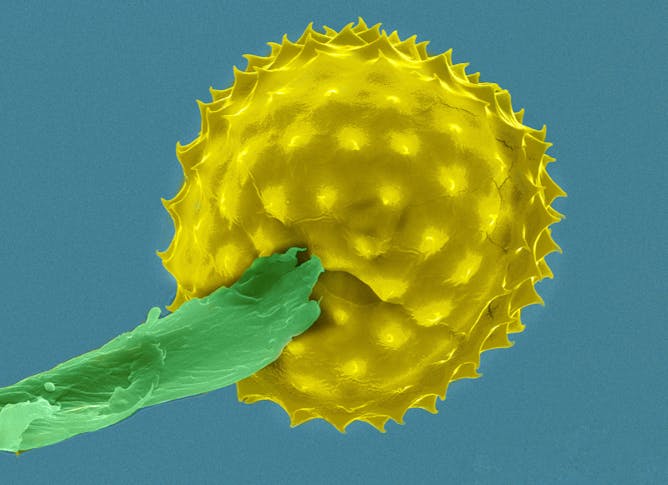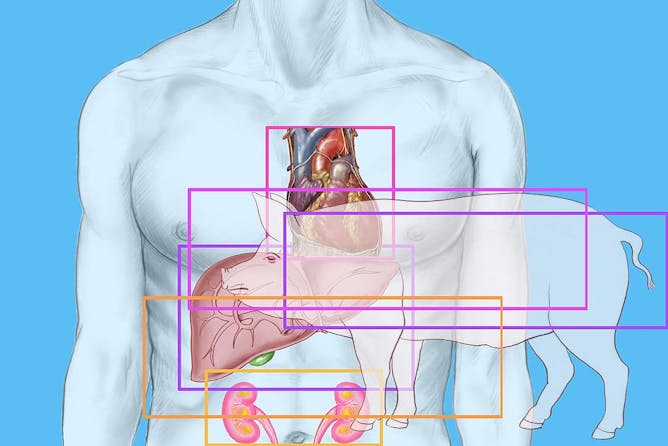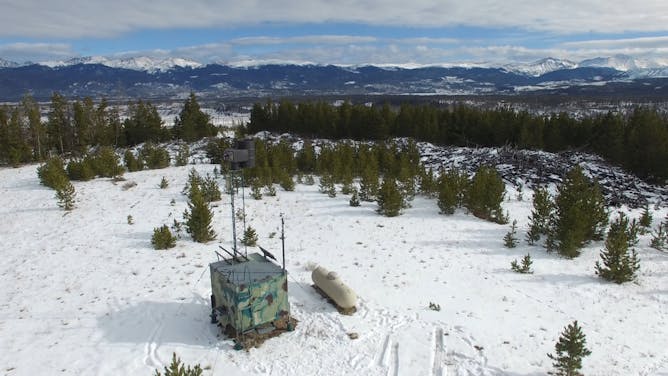|
|
|
|
Climate change is making seasonal allergies worse, and pollen season is about to get longer and more intense, a new study finds. University of Michigan scientists Yingxiao Zhang and Allison Steiner examined multiple types of trees and grasses, as well as effects across different regions, to gauge the risks ahead. Allergies, of course, are more than a nuisance and can trigger asthma and other serious health problems. If there’s a sliver of good news from study, authors Yingxiao Zhang and Allison Steiner say, it’s that researchers expect to be able to improve pollen forecasting.
Last week the first person to receive a transplant of a heart from a genetically altered pig died. David Kaczorowski, a University of Pittsburgh Health Sciences Cardiac transplant surgeon, provides both a look back and roadmap to the field of xenotransplantation. Despite significant challenges and sad outcomes like the one from last week, Kaczorowski notes “how far science has come toward making animal-to-human transplants a viable treatment possibility.”
Cloud seeding has its origin in the 1940s but remains an active area of interest for states and countries looking to combat drought. Colorado State University atmospheric scientist William Cotton, who has studied weather modification for decades, says the states now conducting cloud seeding tests should not expect great results. “The percentage increases in precipitation are small, and it’s difficult to tell when snow or rain fell naturally and when it was triggered by seeding,” he writes.
Also in this week’s science and research news:
If there’s a subject you’d like our team of science editors to investigate, please reply to this email.
|

|
Martin La Monica
Director of Editorial Projects and Newsletters
|
|

Ragweed pollen, instigator of headaches and itchy eyes across the U.S.
Bob Sacha/Corbis Documentary via Getty Images
Yingxiao Zhang, University of Michigan; Allison L. Steiner, University of Michigan
Rising temperatures mean longer, earlier pollen seasons, but the bigger problem is what carbon dioxide will do to the amount of pollen being released. A 200% increase is possible this century.
|

Xenotransplantation has made significant strides over the past few decades.
BSIP/Universal Images Group via Getty Images
David Kaczorowski, University of Pittsburgh Health Sciences
Recent successes putting genetically modified pig organs into people have brought xenotransplantation back into the spotlight.
|

Cloud seeding equipment near Winter Park in Colorado.
Denver Water
William R. Cotton, Colorado State University
Several states are experimenting with weather modification to try to generate snow as water supplies shrink. An atmospheric scientist explains the history behind it – and the challenges.
|
|
|
-
Bill Sullivan, Indiana University School of Medicine
Albert Alexander was the first known person treated with penicillin. While his ultimately fatal case is well known in medical histories, the cause of his illness has been misattributed for decades.
-
Tom Langen, Clarkson University
These coordinated movements of a flock of starlings follow no plan or leader. Scientists used to think the animals must communicate via ESP to create these fast-moving blobs.
-
Kevin Zeng, U.S. Army Medical Research Institute of Infectious Diseases
Although treatments for Ebola have helped many people overcome this deadly disease, the virus can persist in the brain and cause a lethal relapse.
-
Laura Mauldin, University of Connecticut
As COVID-19 survivors join the ranks of people with disabilities, they could have a long wait to get the support they need.
-
Michael Jaffe, Mississippi State University; Tracy Jaffe, Mississippi State University
Since canine arthritis can’t be cured, the goal of treatment in dogs is to reduce inflammation to increase comfort and improve a dog’s quality of life.
-
David Godwin, University of Florida
Hurricane Michael left a jumbled mess of downed trees. Cleaning it up is even harder than it sounds, and now dead trees are burning.
-
Matt Zinter, University of California, San Francisco
Disruptions to the lung microbiome are linked to a number of respiratory conditions in both children and adults.
|
|
|
Like this newsletter? You might be interested in our other weekly emails: Enjoy reading
The Conversation? Share us with your three closest friends:
|
| |
| |
| |
| |

|
| |
| |
| |
| |
| |
| |
|
|
|
|
|
|
|